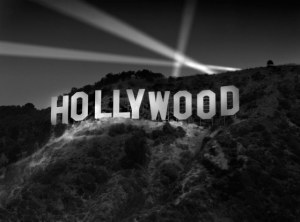
Generally, an O-1 visa is an employment visa for individuals who have demonstrated “extraordinary ability in the sciences, arts, education, business or athletics.” To qualify, an applicant must demonstrate that he or she has sustained national or international acclaim by satisfying certain criteria detailed in the regulations. Over the last several years, the O-1 visa has proven to be a valuable option for many applicants who would not otherwise qualify for alternative employment authorization in the U.S. (e.g. H-1B, L-1B, TN, etc.). Moreover, I have witnessed many applicants who have completed their study in the United States succeed in applying for the O-1. This is not to say that petition is easy, by any means.
That being said, the O-1 is an attractive option for those engaged in mediums that would not commonly be considered “art.” This is in large part due to the fact that USCIS interprets the O-1 statute to encompass almost “any field of endeavor” when considering whether a certain medium is an art form for the purposes of the O-1. The term “arts,” for example, can include principal performers or essential personnel such as directors, set designers, coaches, arranges, stage technicians, and so forth. When I meet with potential O-1 applicants, detailing the criteria and extensive documentation required for an O-1 petition can be quite daunting. Indeed, it is important that applicants work closely with their lawyer when gathering and preparing the required documentation. This is not to say that I don’t enjoy working with potential O-1 applicants. On the contrary, they are some of the most colorful and enjoyable clients I have had.
When discussing the possibility of an O-1 with a client, one issue that is consistently confused is the issue of the applicant’s sponsor (i.e. employer/petitioner). Specifically, the issue of agents as sponsors is the most cause for confusion. This is likely due in part to the abundance of misinformation online or misinformed peers and colleagues.
Where an O-1 applicant is sponsored by a company or organization in the U.S. for a detailed period of time, the issue of sponsorship is not an issue at all. Among other documents, the O-1 applicant simply provides documents outlining the employment agreement with that specified employer. However, the issue becomes more nuanced when dealing with multiple employers and agents. Multiple guidance has been offered by USCIS to no avail. One of the most common questions that arises is “Does my O-1 sponsor have to be an established agency, or can any individual act as my agent?” The short is answer is no, an applicant’s O-1 sponsor does not have to be an established agency. An O-1 applicant may be sponsored by any individual in the U.S. that is a United States citizen or Legal Permanent Resident.
More importantly, that individual does not necessarily have to have been an agent prior to the O-1 petition. Rather, the individual need only be “in the business” as an agent for the purposes of the O-1. Among other things, an applicant is required to provide a detailed letter signed by both parties explaining the terms and conditions of the employment. Furthermore, USCIS requires additional supporting documents when it comes to prospective employment through agents and multiple employers, including: i) a complete itinerary; ii) the itinerary must specify the dates of each event, the names and addresses of the employers and the names and addresses of the events; iii) contracts between the employer and beneficiary (or contracts indicating that the agent is authorized to act on behalf of the various employers).
While there are other advantages to being sponsored by an established agent, or someone with an established background, the law allows any U.S. Citizen or Legal Permanent Resident to act as a sponsor for the O-1 petition, provided certain criteria are met.
The requirements for an O-1 petition can be quite rigorous, and a prospective applicant should consult with an experience immigration lawyer prior to applying.
